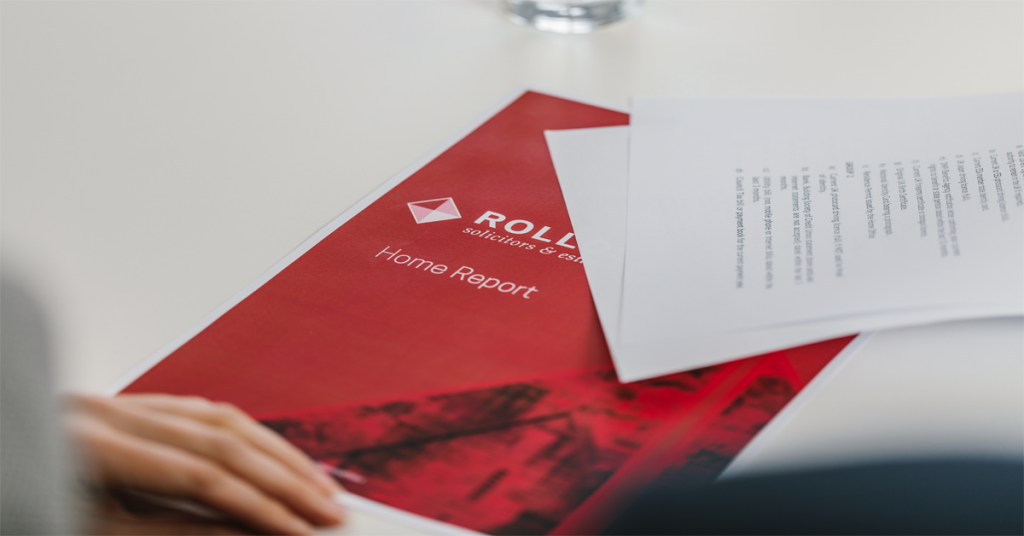Residential Conveyancing – Answering The Most Faqs
Residential Conveyancing
5 years ago

Buying or selling residential property can seem daunting at the outset, especially for first time buyers who have had no experience of the conveyancing process before. Solicitor Donna Imrie has answered some of Rollos most FAQ surrounding Residential Conveyancing.
· What is Residential Conveyancing and why do I need this service?
A Conveyancer is a Solicitor or the employee of a Solicitor who deals in practice mainly with the purchase and sale of heritable property. A Conveyancer should be instructed if you are looking to sell the property you currently own or purchase a new property. The conveyancer will guide you through each stage of the conveyancing process.
· What can I expect during the conveyancing process?
There are four main stages of a property transaction:-
1. Marketing
2. Concluding missives
3. Completing title and drafting the deed
4. Settlement
· Are problems likely to arise?
Sellers are urged to contact their Solicitor at the earliest opportunity so that the preparations can be made in good time. Knowing where your title deeds are stored is extremely helpful and will assist the Conveyancer with organising the sale of your property. Clients are encouraged to have mortgage account details to hand when they contact the Conveyancer prior to the sale of their property. This allows Conveyancers to request title deeds and a redemption statement from the lender. It is also good practice to have all alterations documentation in place. This allows the Conveyancer to exhibit this to the purchaser’s Solicitor where necessary. Not having alterations documentation in place could mean that a delay in settlement may occur.
When purchasing a property it is important to have the funds in place. Your solicitor will ask you for source of funds documentation to show that you have funds in place. If obtaining a mortgage you should have an agreement in principle from your lender as this puts you in a good position to Offer. If you are using personal funds to purchase these should be readily available.
· What is meant by ‘Noting Interest’?
Noting interest does not guarantee the opportunity to make an offer. Noting interest is simply making the seller’s agents aware that you may be interested in making an offer at a later date. When your solicitor notes interest on your behalf they will be updated with information about how many other notes of interest there are and if/when a closing date will be set.
· Can the seller pull out at any stage after an offer is accepted?
The seller or purchaser can pull out at any stage after an offer is accepted. Until missives are concluded there is no legally binding contract and either party is entitled to pull out.
· What is a Closing Date?
A closing date is a date and time set by the seller’s agents by which any interested parties must submit their best offer. If your offer is late it will not be considered.
· What are ‘Missives’?
Missives is the name given to the contract for the sale and purchase of heritable property in Scotland that is made up of a series of formal letters entered into by or on behalf of a purchaser and a seller dealing with the conditions that are to apply to the purchase and sale of the property.
Conclusion of missives represents the formation of a binding contract. The contract will describe the property, the price being paid, the date that the price has to be paid and all other details of the sale or purchase.
Often there is a delay in concluding missives due to for example waiting on a lender issuing loan papers or waiting on funding being in place. Issues in title often arise which causes a delay. This means that the date of entry is delayed and settlement will take place at a later date. Good preparation is key to ensuring the transaction runs smoothly.
· What are ‘title deeds’?
The title pack for the property is made up of Deeds and documents which show who the proprietor of the property is and what conditions are attached to the property. In the past the title pack would contain various Deeds however with properties in Scotland going on to the Land Register we now essentially are provided with one document which is the Title Sheet for the property, giving a condensed explanation of the ins and outs of the property. Essentially a snap shot of the property.
· How regularly should I expect to hear from my Solicitor through this process?
Clients should expect communication with the Solicitor throughout the transaction on a regular basis. The Solicitor will communicate with the client to update them on what stage the transaction is at.
· When do I find out my entry date and where do I get my keys?
After missives are concluded both parties are then in a legally binding contract. The date of entry will have been set and the Solicitor will advise of arrangements for the keys on approach to the date of entry. The buyer can collect the keys for the property once their Solicitor has been in touch to inform them that the transaction has completed. The Solicitor will advise of the place where the keys have to be collected from.